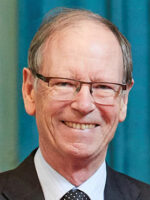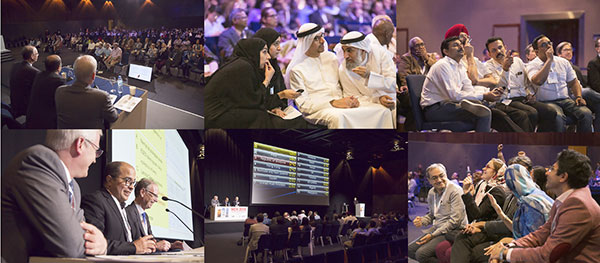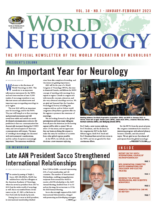Stimulating and eye-opening! If I were to neatly describe my experience at Innsbruck Hospital in Austria, this would be it.
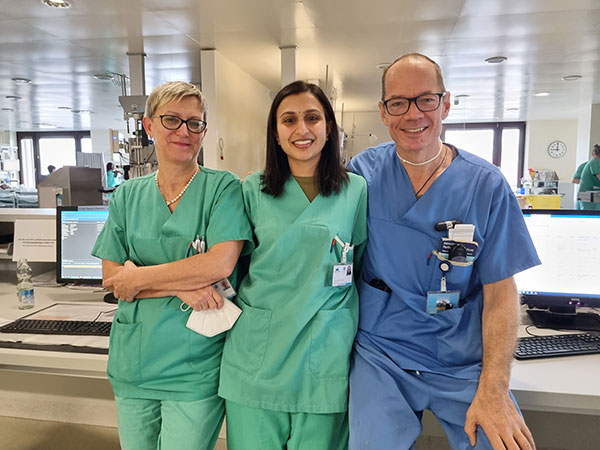
Neurology consultants at Innsbruck Medical University Hospital. (Left to right) Bettina Pfausler, Heena Narotam Jeena, and Martin Sojer.
I am deeply indebted to the World Federation of Neurology and Austrian Neurology Society for providing me with the opportunity to take part in this African Initiative project. My gratitude extends to Sophia Huppmann (social secretary of the Austrian Neurology Society) for tirelessly coordinating the logistics of my stay and to the consultant neurologists Michael Knoflach, Martin Sojer, and Bettina Pfausler for their hospitality and for ensuring I gain the most from my time in and out of the hospital in Innsbruck. Lastly, to my home institution of Tygerberg Hospital and my colleagues, thank you for affording me the time away from work in order to pursue this opportunity.
From the moment I peered through the aeroplane window upon our descent into Salzburg, marveling at the view of the rolling green hills, snow-capped Alps, and scattered village-like dwellings, I knew a unique and enriching experience was about to unfold.
I landed the evening in Salzburg and took the train to Innsbruck the next morning. It did not take me long to realize that I was, for all intents and purposes, functionally aphasic and that my German needed some work. I invested more time into learning the language, and on my first morning at the hospital could thankfully access some basic necessities with ease: “ein große americano, bitte!” (one large americano, please!).
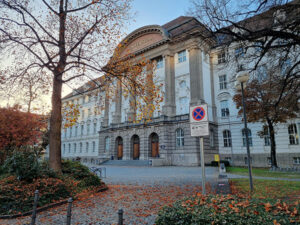
The Innsbruck Medical University.
Every morning I would kit up and brace the refreshing cold air as I walked a short distance of 1 km to get to the hospital. The neurology division at the hospital consists of four wards (stroke unit, general neurology, epilepsy, and intensive care unit).
I spent my first two weeks in the stroke unit, where I was exposed to a multitude of stroke cases. I witnessed impressive door-to-needle times and had first-hand exposure to the day-to-day running of the unit. I quickly realized that access to direct oral anticoagulants and administration of intravenous heparin was easily accessible and formed part of standard practice; warfarin is not routinely used. MRI brain and Doppler of the neck vessels is the investigation of choice for stroke aetiology workup, and this is sometimes followed by angiography and FDG-PET, where indicated. The European guidelines are followed when evaluating the ultrasonography findings to make a decision with regards to management.
The health care worker to patient ratio is impressive, and access to diagnostic tests is readily available. An electronic recordkeeping system, which instantly uploads test results, diagnostic images, and patient notes, is used. Each staff member is equipped with a mobile telephone to use for communication within the hospital, as well as to contact external hospitals and patient family members. Each ward has a secretary who is responsible for arranging the relevant diagnostic tests as well as assisting with administration related to patient care.
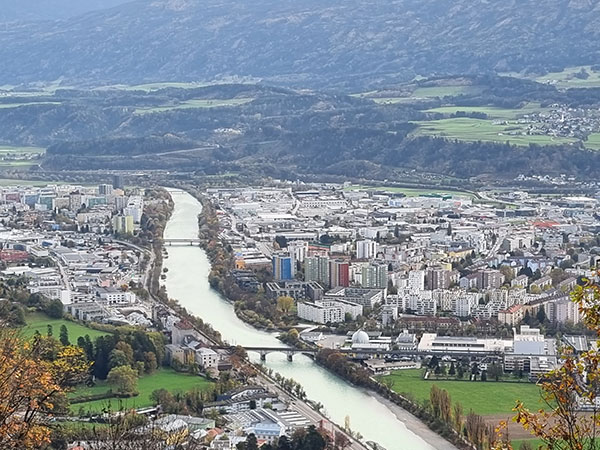
View of Innsbruck from the top of Arzler Alm in Innsbruck.
I also spent time in the outpatient department and was exposed to various specialised clinics such as the Huntington’s clinic, ataxia clinic, Parkinson’s clinic, and botulinum toxin clinic. The Medical Emergency Department was another favorite place of mine to visit. Here, I would join the neurology resident and consultant as they attended to various neurological cases, including headache, backache, seizures, and strokes, to name but a few examples.
My last two weeks were spent in the neurology intensive care unit. The team of consultants managing the unit are neurointensivists, and residents spend part of their training time learning to manage critically ill neurological patients. These patients may, however, also have multiorgan involvement and co-management with other disciplines.
All in all, my experience at the Innsbruck Medical University Hospital has been excellent. The partial language barrier has been to my benefit — I was forced to really look at the patients, their body language, and clinical signs and listen to the prosody of their speech in order to gain an understanding of their impairments. In neurology, we can learn so much through observing our patients. I trust that the exposure to a broad spectrum of neurological disease will prove to be beneficial to my future practice in the field. Furthermore, the opportunity for personal growth which this experience has afforded me is far-reaching.
As the adage goes, all good things must come to an end. I look forward to the next part of my journey where I am able to offer greater insight and expertise into the management of patients with neurological disorders. The relationships that have been fostered with experts in the field are invaluable, and we are already exploring avenues with which to facilitate continuous education, research, and collaboration in the near future. Ending my stay with a stimulating and engaging meeting with Prof. Wolfgang Grisold, WFN president, has reawakened the advocate inside me and reminded me that kindness and humility are the highest accolades to strive toward. •
Heena Narotam Jeena is a registrar in the division of neurology at Tygerberg Hospital/University of Stellenbosch in Cape Town, South Africa.
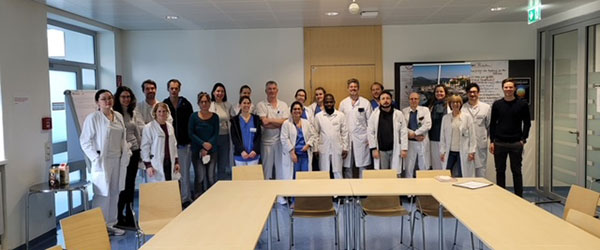
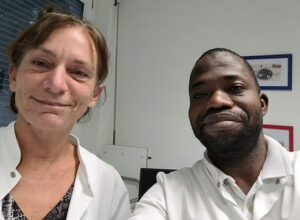 On arrival in Vienna, I boarded a train to Salzburg, where I would start my posting cum observership the next day in the neurology department of the Christian Doppler Clinic with my designated mentor, Prof. Eugen Trinka, a pleasant, joyful, and highly regarded epileptologist. Dr. Giorgi Kuchukhidze and the department’s secretary, Christa Muller were on hand to welcome me the next morning. They walked me through the paperwork and showed me around Salzburg’s facilities and the surrounding areas.
On arrival in Vienna, I boarded a train to Salzburg, where I would start my posting cum observership the next day in the neurology department of the Christian Doppler Clinic with my designated mentor, Prof. Eugen Trinka, a pleasant, joyful, and highly regarded epileptologist. Dr. Giorgi Kuchukhidze and the department’s secretary, Christa Muller were on hand to welcome me the next morning. They walked me through the paperwork and showed me around Salzburg’s facilities and the surrounding areas.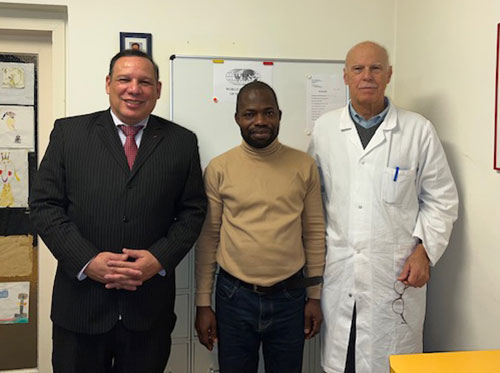
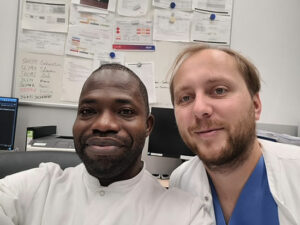 Maya Angelou sums up my experience with the words: “This is a wonderful day. I have never seen this one before.” Indeed, it was an exceptional exposure to kindness beyond limits and the Austrian Neurological Society’s desire to make the world a better place. I have truly never seen it before. Thank you, the Austrian Neurological Society, I am forever grateful! Thank you, the World Federation of Neurology for your selflessness. The world is certainly a better place because of you all.
Maya Angelou sums up my experience with the words: “This is a wonderful day. I have never seen this one before.” Indeed, it was an exceptional exposure to kindness beyond limits and the Austrian Neurological Society’s desire to make the world a better place. I have truly never seen it before. Thank you, the Austrian Neurological Society, I am forever grateful! Thank you, the World Federation of Neurology for your selflessness. The world is certainly a better place because of you all.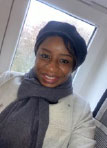
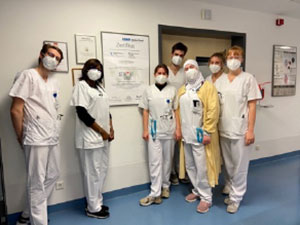
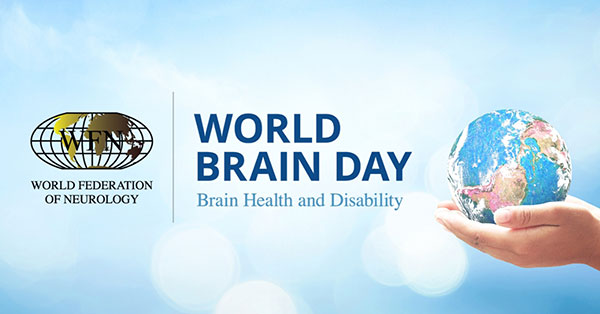 Key Message
Key Message 